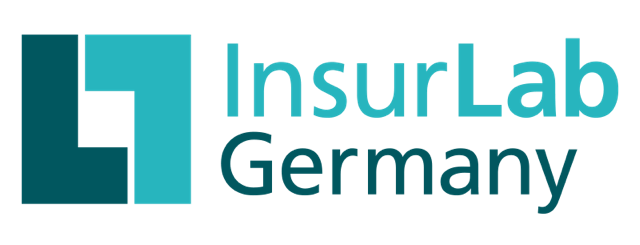At the beginning of 2019 I joined Tractable a UK technology company that uses AI to analyze auto claims, to lead its expansion efforts in Germany. Tractable is one of the largest and most developed insurance companies in the UK. We have raised $30 million from leading U.S. VCs to scale our solution globally, and insurers around the world are using our AI to speed up their auto claims processing. But how does the German insurance ecosystem compare to AI adoption? Here's what I've learned so far:
1. German insurers reluctant to trust AI
Tractable uses computer vision - a process in which a machine understands what is contained in an image - to analyze car damage. This speeds up claims processing, e.g. by helping adjusters make decisions (e.g. on total losses), resulting in significant cost savings. In the UK, Tractable helps leading insurers use AI to produce estimates of end-to-end claims, often without human correction.
In Germany, however, there is a problem. Most German insurers have already tried other AI solutions and were very disappointed with what they saw - which means it is difficult to convince them to adopt such solutions. Essentially, from experience, Germans don't believe that this technology works - and that means it can be difficult to have initial conversations with them.
Fortunately, we have ways around this. For one thing, our AI is the global market leader - it has been trained on over 150 million images of car damage - and is already in use by 12 insurers in 9 countries around the world. That's an advantage when it comes to overcoming preconceptions and demonstrating that the technology works. We've been very active in providing live demos that show how AI can dissect a photo of a car damage, analyze it, and suggest next steps. Live tests help prove the power of AI and its capabilities, and show skeptics that AI isn't something a few years away - it's here and we can show you that it works now.
2. large, helpful, insurance ecosystem
Germany is, of course, an important target market for Tractable. German insurance companies are among the most established in the world - and they live in an extremely competitive market.
That means there are many opportunities on the table, especially as we believe we can help insurers save on their combined ratios up to more than one point. But to consider working with you, German insurers also need to know that your business is serious and long-term - not least because they have to distinguish between many startups from around the world, all proposing new solutions that may or may not help (or even work).
Therefore, it was critical that we quickly establish a presence and meet with many of the key players. Fortunately, Germany has a well-developed insurance technology scene, including centers in Cologne and Munich. We were able to leverage the connections of bodies and networks such as Plug and Play, DIA and InsurTech Lab to get the necessary introductions and endorsements.
It helps that we have already worked with subsidiaries of large German insurers in other countries. Although the industry can be slow, we were able to stimulate many conversations to speed up the decision-making process.
3. finding the right fit is important, especially in Germany.
Another challenge is that not all markets are the same and the fit of our product is different in Germany than elsewhere. In particular, there are many independent valuers and valuation companies in the German market. This is unusual and makes scalability difficult for insurers. (Example: In Austria, insurers are actively approaching us because they see how they can use our technology to assess previous damage when issuing new policies for used cars). However, one positive we have discovered in Germany is that there is a well-accepted process of early data sharing to conduct initial testing - almost like a 'light' proof of concept (PoC). This means that we can quickly find out where our product might fit with German insurers. In addition, what has happened with other customers around the world also helps us: every insurer that has seriously trialed our solution so far has found value in it and become a customer - so getting commitments for these early tests can be a win for us.
Now that we've had these experiences, where do we go from here?
Well, we are now having exciting discussions with German insurers, with the aim of finding just the right use case so that we can work with them in 2020. And once we have those agreements in place, we will continue to expand our presence in the country, as we have done in other parts of the world. For example, we have increased the number of people we have on the ground in Tokyo from 0 at the beginning of 2019 to 10 today to keep up with demand.
But for me, perhaps the biggest win is that it will change the way German insurers think about computer vision and how it can help them. I believe that our solution will be the catalyst for a new way of handling motor claims in Germany, as it is starting to be in France, Poland, the UK, Japan and elsewhere. I look forward to helping the ecosystem realize that AI is not for the future - it is here and ready to make a difference today

